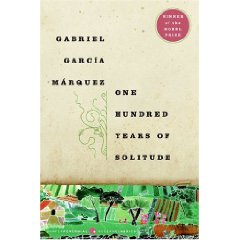I don’t recall if I ever mentioned The Spectacle Blog, “a place for authors of middle grade and young adult books to discuss writing science fiction, fantasy, and everything else along the spectrum of speculative fiction.”
This relatively new blog, begun in January 2009, is notable, too, for it represents an emerging trend in blogging, the “multiple author blog.” At this date, the Spectacle’s authors include: Parker Peevyhouse, P.J. Hoover, Jo Whittemore, Greg R. Fishbone, Linda Joy Singleton, Joni Sensel, and Steve Brezenoff. They do a good job, interviews, prizes, games, ponderings, questions, and ruminations about publishing in general. A hearty soup, as you’d expect when seven cooks are in the kitchen.
One of my favorite contributors is Parker Peevyhouse, maybe just because of her name. How do you not like somebody named Parker Peevyhouse? Parker’s first book will be published by Disney-Hyperion, don’t know when. She seems nice, lives in the Bay Area (always a good sign), and has a blogger’s gift for asking questions, rather than giving answers.
I hope P.P. and her battery of lawyers don’t sue me if I quote a recent post in full:
Writing character reactions to shocking events is hard enough when you’re writing realistic fiction. But when you’re writing science fiction and fantasy, it can seem nearly impossible.
Sometimes I get impatient with a character who is processing a shocking event–okay, so you’re actually an alien with telekinetic powers, get over it! I also tend to dislike the “after scene,” in which the character does little more than sit around at home and eat something and Think Things Over.
It’s also a problem when a character doesn’t freak out quite enough (an error I tend toward in my writing). I think back to the scene in the film version of Harry Potter and the Sorcerer’s Stone when young Harry finds out he’s a wizard. The actor sort of gapes and says “I’m a what?” and looks rather dead-eyed despite his best efforts. But how is a person really supposed to understand how that kind of scene would actually play out? It’s hard to imagine the shock of such a realization.
So I ask you… how do you get into a character’s head in order to write a sufficient reaction scene? What novels or stories do you think have scenes realistically portraying shock?
I jumped down to the Comments section, read a few replies, and started tapping out one of my own. Loose, rambling, at times ungrammatical, and too long for the format. I wrote “as” when I meant “if,” and so on. I’m glad it wasn’t an SAT test.
While not very interested in wizards and dragons or the elastic nature of Time, I’ve long fantasized about “having a go” at Magic Realism. (In my fantasies, apparently, I’m an Englishman from Derbyshire.) I am attracted to the idea of fantasy elements coming in close contact, or collision, with the boots-on-the-ground elements of a detailed, otherwise realistic story. Maybe ever since I read about that character in Gabriel Garcia Marquez’s influential novel, published in 1967, One Hundred Years of Solitude — an aging grandmother out hanging laundry, just floating up into the sky, gone forever.
Fantastical and strange, yes, but somehow a perfectly poetic truth about loss and the passing of loved ones that could not be better expressed another way.
Anyway, I find myself returning to The Spectacle Blog when I can, and often find something worthwhile. For my ridiculously long response to Parker’s question, click here, and follow the Comments section down the Yellow Brick Road.



I’m the same, I tend towards grounded fantasy, so it’s based on earth but somehow strange and fantastical things can happen in the most ordinary of circumstances. I have written some stories that are totally ‘off world’ but it’s a bit hard to truly ‘care’ for the characters, they’re somehow one step removed from me. Bringing the stage home makes me interested enough to write about it!